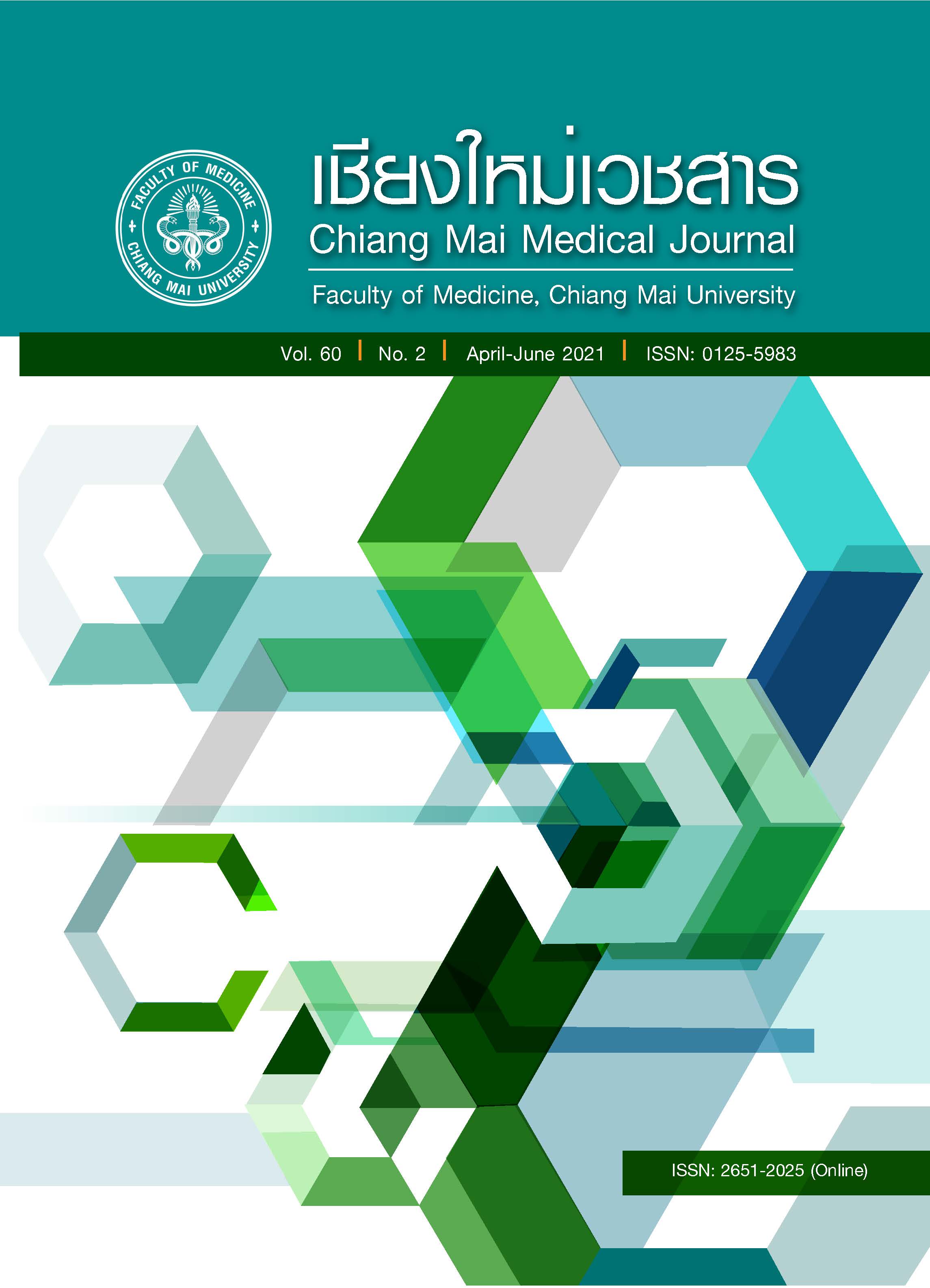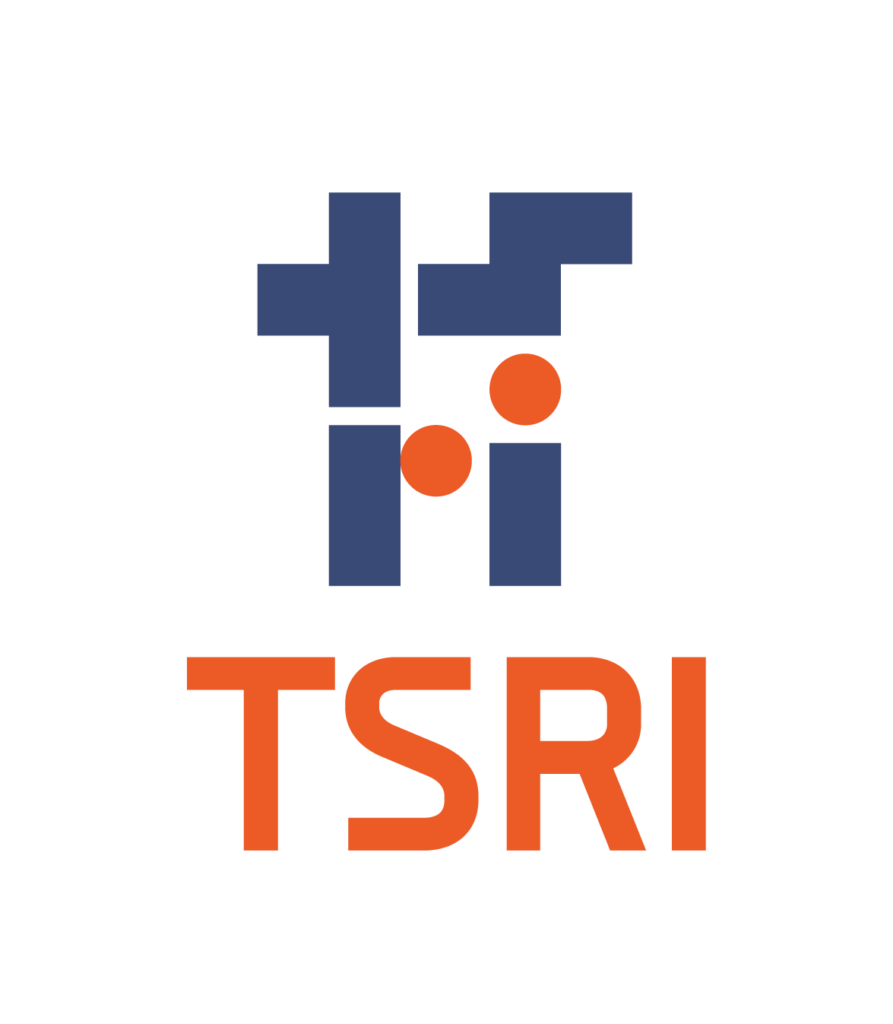Mental health literacy and quality of life among patients with strok
Keywords:
mental health literacy, quality of life, strokeAbstract
Objectives To study the level of mental health literacy and quality of life among patients with stroke and to investigate the relationship between mental health literacy and quality of life.
Methods A cross-sectional descriptive study was conducted with 150 purposively selected stroke patients at Sanpasithiprasong Hospital, Ubon Ratchathani, Thailand. Data were collected from Octo-ber 2019 to March 2020. The research tool consisted of 3 parts: general and clinical data, a mental health literacy questionnaire, and the Thai version of the stroke-specific quality of life scale. Data were analyzed using descriptive statistics and Spearman’s rank correlation coefficient
Results The mean age of participants was 51.80 years (SD 8.62); most were female (65.33%). The level of mental health literacy among patients with stroke was moderate (mean = 3.05, SD = 0.21). The quality of life among patients with stroke was moderate (mean = 3.06, SD = 0.66). The mental health literacy questionnaire yielded a Cronbach’s alpha coefficient of 0.92, and the Thai version of the stroke-specific quality of life scale yielded a Cronbach’s alpha coefficient of 0.96. Mental health literacy was statistically significantly associated with quality of life among patients with stroke (r = 0.484, p < .001).
Conclusions The mental health literacy among patients with stroke was moderate as was their quality of life. Mental health literacy was significantly associated with quality of life among patients with stroke. This suggests that emphasizing and promoting mental health literacy among patients with stroke can improve and increase their quality of life
References
World Health Organization. The atlas of heart disease and stroke Geneva, Switzerland: World Health Organization (WHO); 2014.
Global Burden of Disease Collaborative Net-work. Global burden of disease study 2017 (GBD 2017) results. Seattle, United States: Institute for Health Metrics and Evaluation (IHME); 2018.
Thangkratok P. The role of the nurse in the chronic disease management. Songklana-garind Journal of Nursing. 2017;37:154-9.
Thangkratok P, Vararuk A, Silawan T, Piaseu N. Role of nurses in implementing chronic care model in subdistrict health promoting hospi-tal. Science, Engineering and Health Studies. 2019;13:83-92.
Kim JS, Choi-Kwon S. Poststroke depression and emotional incontinence: correlation with lesion location. Neurology. 2000;54:1805-10.
Vojtikiv-Samoilovska D, Arsovska A. Preva-lence and predictors of depression after stroke - results from a prospective study. Open Access Maced J Med Sci. 2018;6:824-8.
Garton ALA, Sisti JA, Gupta VP, Christophe BR, Connolly ES, Jr. Poststroke post-traumatic stress disorder: a review. Stroke. 2017;48:507-12.
Wright F, Wu S, Chun H-YY, Mead G. Factors associated with poststroke anxiety: a system-atic review and meta-analysis. Stroke Res Treat. 2017;2017:2124743.
Carota A, Bogousslavsky J. Mood disorders after stroke. Front Neurol Neurosci. 2012;30:70-4.
Kim JS, Choi-Kwon S, Kwon SU, Lee HJ, Park KA, Seo YS. Factors affecting the quality of life after ischemic stroke: young versus old patients. J Clin Neurol. 2005;1:59-68.
Choi-Kwon S, Kim HS, Kwon SU, Kim JS. Fac-tors affecting the burden on caregivers of stroke survivors in South Korea. Arch Phys Med Rehabil. 2005;86:1043-8.
Liman TG, Heuschmann PU, Endres M, Floel A, Schwab S, Kolominsky-Rabas PL. Impact of low mini-mental status on health outcome up to 5 years after stroke: the Erlangen Stroke Project. J Neurol. 2012;259:1125-30.
Bundhamcharoen K, Odton P, Phulkerd S, Tangcharoensathien V. Burden of disease in Thailand: changes in health gap between 1999 and 2004. BMC Public Health. 2011; 11:53. doi: 10.1186/1471-2458-11-53.
Posai V, Pipatsombat P, Thangkratok P. Neu-ropsychiatric symptom clusters and quality of life among patients with stroke. Rama Med J. 2019;42:1-11.
Reavley NJ, McCann TV, Jorm AF. Mental health literacy in higher education students. Early Interv Psychiatry. 2012;6:45-52.
Jorm AF, Korten AE, Jacomb PA, Christensen H, Rodgers B, Pollitt P. Mental health literacy: a survey of the public’s ability to recognise mental disorders and their beliefs about the effectiveness of treatment. The Medical jour-nal of Australia. 1997;166:182-6.
Jorm AF. Mental health literacy: empower-ing the community to take action for better mental health. Am Psychol. 2012;67:231-43.
Jorm AF. Mental health literacy: public knowledge and beliefs about mental disor-ders. Br J Psychiatry. 2000;177:396-401.
Farrer L, Leach L, Griffiths KM, Christensen H, Jorm AF. Age differences in mental health lit-eracy. BMC Public Health. 2008;20:125. doi: 10.1186/1471-2458-8-125.
Division of Health Informatics and Surveil-lance. Epi Info™: statistical calculators. U.S. Department of Health and Human Services: Center for Surveillance, Epidemiology and Laboratory Services (CSELS); 2018.
Almeida OP, Xiao J. Mortality associated with incident mental health disorders after stroke. Aust N Z J Psychiatry. 2007;41:274-81.
Best JW. Research in education. 3rd ed. Engle-wood Cliffs, Nj: Prentice-Hall; 1977.
Thangkratok P, Posai V, Pipatsombat P, Train-attawan W, Suksatan W. Validity and reliabil-ity of the Thai version of the stroke specific quality of life scale. J Med Health Sci. 2019; 26:33-43.
Clarke PJ, Black SE, Badley EM, Lawrence JM, Williams JI. Handicap in stroke survivors. Disabil Rehabil. 1999;21:116-23.
Lee ACK, Tang SW, Leung SSK, Yu GKK, Cheung RTF. Depression literacy among Chi-nese stroke survivors. Aging & Mental Health. 2009;13:349-56.
Namdej N, Phongsakchat P, Sangournpak O. Mental health literacy among senior high school students in Saraburi Province. Journal of Nursing and Education. 2018;11:125-38.
Kim YS, Lee HY, Lee MH, Simms T, Park BH. Mental health literacy in korean older adults: a cross-sectional survey. Journal of Psychiat-ric and Mental Health Nursing. 2017;24:523-33.
Piper SE, Bailey PE, Lam LT, Kneebone II. Predictors of mental health literacy in older people. Arch Gerontol Geriatr. 2018;79:52-6.
Farrer L, Leach L, Griffiths KM, Christensen H, Jorm AF. Age differences in mental health literacy. BMC Public Health. 2008;8:125.
Thangkratok P, Palacheewa N, Trainattawan W, Boonpradit P. Mental health literacy: con-cept and application for mental health prob-lem prevention in older adults. Chiang Mai Medical Journal. 2020;59:163-72.
Downloads
Published
How to Cite
Issue
Section
License
Copyright (c) 2021 เชียงใหม่เวชสาร

This work is licensed under a Creative Commons Attribution-NonCommercial-NoDerivatives 4.0 International License.










